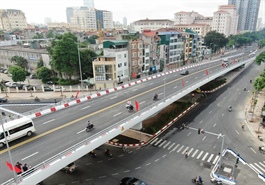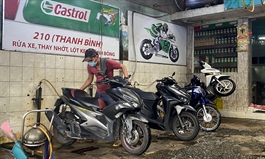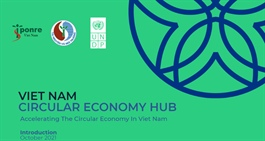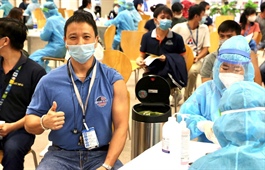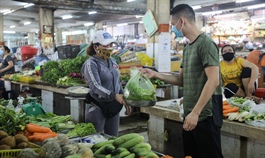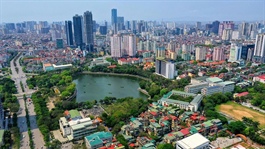Vietnam seeks suitable ways to live with the pandemic
Vietnam seeks suitable ways to live with the pandemic
The resurgence of the Covid-19 pandemic is seriously affecting manufacturing and exports, necessitating additional prevention and control measures in order to avoid supply chain disruptions.
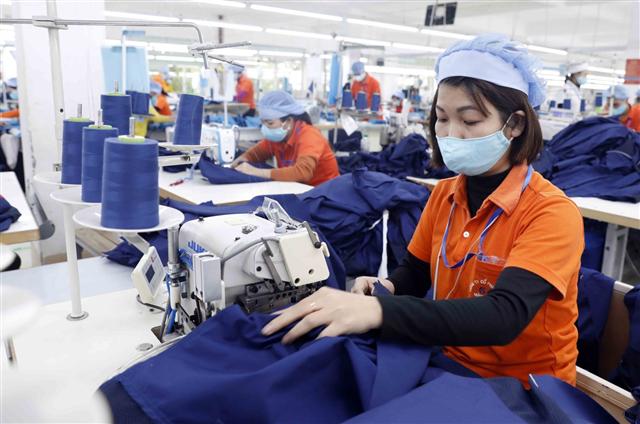
Suitable solutions are needed to maintain trade and production activities |
Supply chain disruptions
Supply chains of electrical-electronic products, machinery and equipment have been disrupted in pandemic-hit provinces and cities, such as Ho Chi Minh City, Binh Duong and Dong Nai. In addition, supply chains of garment and textile, leather and footwear products have witnessed disruptions due to labor shortages and unsuitable implementation of the “three-on-site” model - working, eating and sleeping at the worksite - and the “one route, two destinations” model. In particular, the “three-on-site” model has greatly affected the psychology and health of workers, and increased costs significantly because employers need to pay for worker accommodations and meals.
Supply chains of agricultural and aquatic products have also been disrupted due to social distancing measures and obstacles to the circulation and transportation of goods.
According to the Vietnam Association of Seafood Exporters and Producers (VASEP), more than 50 percent of tra fish processing factories in the Mekong Delta and seafood processing factories in the southeastern region are closed. If the government and localities do not adopt urgent measures, the risk to the entire production chain is inevitable.
Regarding the transport sector, more than 540 businesses withdrew from the market in August, with the remainder struggling with rising costs induced by the pandemic.
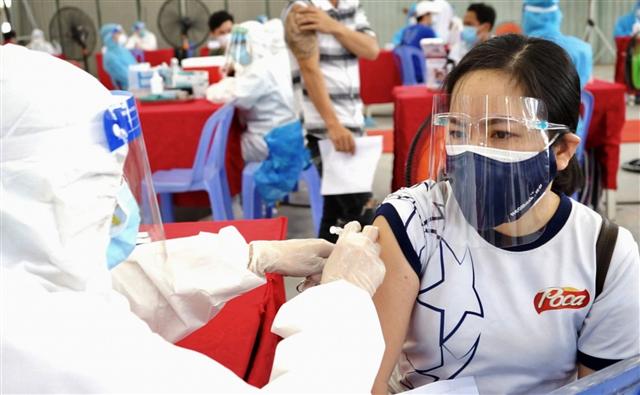
Accelerating mass vaccinations is a top priority |
Responding to the situation
Prime Minister Pham Minh Chinh has asked ministries, departments and localities to adapt to life with the pandemic in the foreseeable future and find suitable ways to respond.
A research group of the National Economics University has proposed that the government direct ministries, departments and localities to facilitate the circulation and transportation of goods and services in provinces and cities that are applying Instruction 16/CT-TTg; allow enterprises to employ qualified workers after two vaccination shots or those who test negative for the virus within 72 hours; allow qualified workers to participate in normal activities, especially those in industrial zones and enterprises away from residential areas.
The group has also suggested abolishing the provisions on essential goods and services in Instruction 16/CT-TTg and specifying goods and services that are banned for circulation; replacing the “green channel” mechanism by a mechanism that allows vehicles to freely move on national highways, provincial roads and main roads (green roads), but strictly manages drivers.
An app on safe labor sources during the pandemic should be developed to inform workers of recruitment and temporary jobs in industrial zones. Enterprises need to carry out digital transformation and do business on electronic platforms, while localities need to mobilize all resources to help accelerate mass vaccinations.







